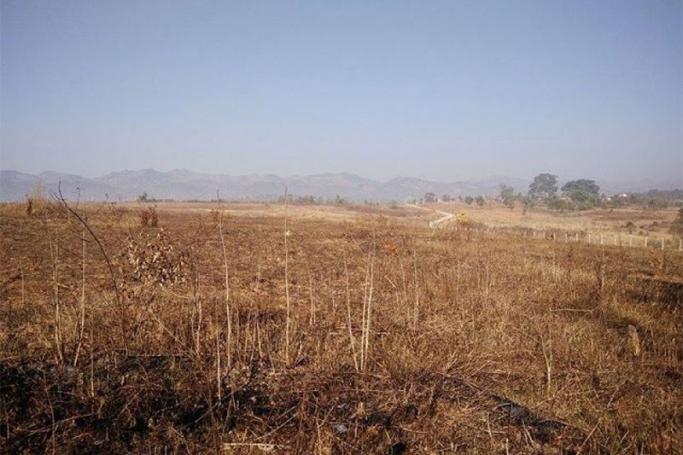Authorities in Myanmar's central Mandalay region plan to confiscate some 40,000 acres of unused farmland to use for the nation's interests, an official said Wednesday.
Land ownership is one of the most contentious issues in Myanmar, where the former junta was accused of rampant confiscation during its 50-year rule.
The new civilian government led by Aung San Suu Kyi has said addressing land conflicts is a priority, after anger among the rural poor helped sweep it to power in 2015 elections.
"We will start to confiscate over 40,000 acres (16,187 hectares) of vacant land this April," Soe Than, Mandalay regional minister for agriculture, told AFP.
"Nothing has been grown on this land for years. The government will use it for the interests of the country," he said, adding it would be suitable for growing coffee.
It was not clear where the land is or who currently lives on it.
A law enacted in 2012 under the previous government gave the state the right to confiscate vacant, fallow or virgin land that was not being used.
Most land seizures in Myanmar date from the 1990s and early 2000s, when the country was undergoing a messy transition from its own brand of junta-controlled socialism to a more market-driven model.
Activists say most of the land was grabbed by military officers and their cronies, and large tracts of it were then loaned to private companies to be cultivated.
A report by campaign group Land in Our Hands claimed 5,000 acres were confiscated from farmers in the Mandalay region in 2010 alone.
Few farmers have documents to prove land title. Those who do often end up mired in a complex and opaque system with little hope of redress.
On Wednesday legal rights group Namati said only 15 percent of their cases involving government ministries ever ended up being resolved.
A commission set up in 2013 to address land grabs has only dealt with a fraction of the tens of thousands of cases across the country.
© AFP
You are viewing the old site.
Please update your bookmark to https://eng.mizzima.com.
Mizzima Weekly Magazine Issue...
14 December 2023
Spring Revolution Daily News f...
13 December 2023
New UK Burma sanctions welcome...
13 December 2023
Spring Revolution Daily News f...
12 December 2023
Spring Revolution Daily News f...
11 December 2023
Spring Revolution Daily News f...
08 December 2023
Spring Revolution Daily News f...
07 December 2023
Diaspora journalists increasin...
07 December 2023
Chinese city on Myanmar border locks down again over Covid cases












